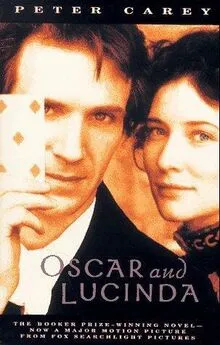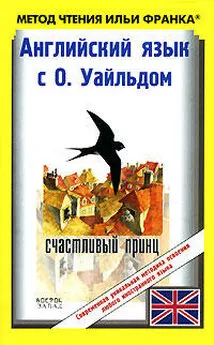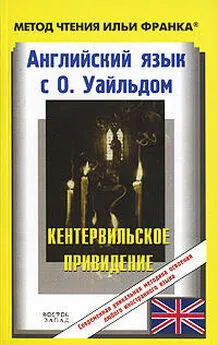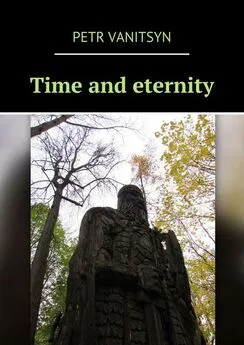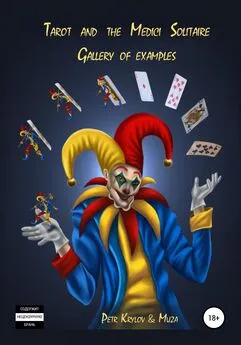Peter Carey - Oscar and Lucinda
- Название:Oscar and Lucinda
- Автор:
- Жанр:
- Издательство:Vintage Books
- Год:1988
- Город:New York
- ISBN:0-679-77750-4
- Рейтинг:
- Избранное:Добавить в избранное
-
Отзывы:
-
Ваша оценка:
Peter Carey - Oscar and Lucinda краткое содержание
The Booker Prize-winning novel-now a major motion picture from Fox Searchlight Pictures.
This sweeping, irrepressibly inventive novel, is a romance, but a romance of the sort that could only take place in nineteenth-century Australia. For only on that sprawling continent-a haven for misfits of both the animal and human kingdoms-could a nervous Anglican minister who gambles on the instructions of the Divine become allied with a teenaged heiress who buys a glassworks to help liberate her sex. And only the prodigious imagination of Peter Carey could implicate Oscar and Lucinda in a narrative of love and commerce, religion and colonialism, that culminates in a half-mad expedition to transport a glass church across the Outback.
Oscar and Lucinda - читать онлайн бесплатно полную версию (весь текст целиком)
Интервал:
Закладка:
The famous Theophilus Hopkins (he had made such a fool of himself with his letters to The Times attacking Mr Darwin) was, if it were possible, even worse than the son. He struck her as a somnambulist. His eyes had looked at her without giving any indication of knowing what they looked at. He carried his tin box as if it were the ashes of someone particularly dear to him. When he sat down he placed the tin box on his lap and rested his tea-cup on it. And yet it was not a lack of manners that Melody found disturbing. Indeed he could rest his cup and saucer on his box and make it appear almost respectable. It was the knowledge that he was batty. He was a handsome man in his way, and quite properly dressed. His hands, it is true, were large and horny, a tradesman's hands more than a gentleman's. But none of this mattered. What mattered was that he was likely to take it into his head that the ship was Babylon. It was this that Ian feared. She watched the old man warily, unsure what he was capable of. She had already endured two prayers, one at the foot of the gangway, and another as the colossal embarrassment of the crane got under way. Ian thought he might begin to lay about him with a whip, as Jesus had driven the money-changers from the temple. She wondered what was really in the tin box and had, indeed, offered to mind it for him. The offer had been courteously declined. She thought he was staring at the crimson portières. Ian claimed these would be the first to go. Their party, however, was by no means the only one gathering in the promenade. There was a preponderance of males and if some of
Who Can Open the Doors of His Face?
them appeared/ beneath their new suits, to be colonials of the rougher tvpe, then so much the better. The ranter would be stopped quickly. He picked up his tin box. She steeled herself. The son took his arms. They walked a little way and stopped. The father's eyes were dark and casting all around. • • * ••«,-..
Who Can Open the Doors of His Face?
The author of Cora/fines of the Devon Coast had an eye well trained to the nicest degree And although we would recognize this to be the result of synapses made by his own passions, millions of connections made like the kno: s in the butterfly net he had left hanging on his study wall in Hennaconbe, each knot occasioned by need and strengthened by use, Theophflis Hopkins, FRS, a proud man, was forever at war with any interpretation which gave him any credit at all. When he called his talent a "gift/ he meant the word not as a simile for talent but an explanation of it. That the gift was considerable is attested to by those drawing of sea ceatures, which were his life's work.
In the context cf the Leviathan, this gift is worth insisting on, for we are discussing ore of the great literal describers of his age, a man who could observe a mtterfly, say, for ten seconds and accurately recall the form and cobration of body and wing parts.
This man saw lothing of the Leviathan. Afterwards he had almost no impression, exept a (needless) concern that the huge paddle wheels on its side were ts only means of locomotion. So if his eyes were, as Melody Clutterbick thought, "all about," then what they were looking at was not tcbe found in the second-class promenade or saloon, not in the library the games room, the dining room, or anywhere else he walked (one step at a time, no individual step in excess of twelve
Oscar and Lucinda
inches) as he tried to hide his arthritic pain from the beloved son the Lord had taken from him. Oscar had left home in 1859. It was now 1865 and they had only met four times in the intervening years. These meetings had been more painful than either could bear, and not because the son had become a "sporting seat"-the father knew nothing of his source of income, imagining him supported by some Anglican mechanism-their disagreement had its roots in the most basic matters of theology. Yet every morning and every evening Theophilus had prayed for his son's soul, that he might yet sit beside God on.the Last Day, that they, mother, father, babes and Oscar, would all be reunited and stand in Glory amongst the Saints. These were not prayers said by rote, but new ones, every time, and anyone who happened to be walking up the long red path to Morley might be privy to the extraordinarily detailed information they contained. The most intimate details of Theophilus's sadness were discussed by everyone in Hennacombe, and yet there was no one with whom he could talk about it himself. The Strattons were kind to him. They were poor, far poorer than he was. They brought him broth and pudding with raisins in it. But he could not discuss the matter with them. They would not stand beside God in the Happy Day.
A second cousin of Mrs Stratton's held a post with the Church Missionary Society of London. That was how the Strattons knew that Oscar was to sail to New South Wales. It was they who brought Theophilus the news his anxious son had not yet summoned up the courage to deliver. Theophilus was miffed. It was worse than miffed. It was jealous. He bit the inside of his cheek and gnawed on his bottom lip until he broke the skin. He could not bear that they should invite him to accompany them on the train to farewell the boy.
God hath delivered me to the ungodly, and turned me over to the hands of the wicked. Yet he must bear it. The Strattons were in error, but they were also kind. He must not be full of pride. He prayed to God to prevent him falling to "that sin which most often besets me." He shared a second-class carriage with them to Southampton. He shared their too-sweet-toomilky tea and felt himself deceitful. He fully intended to save his son, not from Australia but from the Anglican heresy. To this end he worked at his Bible. He wrapped himself in his greatcoat-the carriage was unheated-and while the train rattled over the long low bridge at Teignmouth, he ignored the pleasures of the view, the bare-legged women collecting out on the mud flats, the
176
Who Can Open the Doors of His Face?
lovely lustrous sheen upon the wet earth, the misty blue-white sky. He knew all of the Bible by heart and if you wished to quote a verse to him he could continue from there, reciting until you bade him stop. But on this day, as the train rolled through Exmouth and Lyme Regis, he tore little strips of paper and made diminutive notes upon them. He used these pieces of paper as markers in his Bible, all in readiness for the prayer he would say over his son. The Anglicans insisted on talking. There was nothing in their conversation but money. He knew their situation was difficult. He felt a certain sympathy. But he had never heard such gross materialism. Mrs Stratton, so she told him, was engaged by a certain publisher to write a novel. Theophilus nodded politely. Inside he boiled. He did not doubt that Satan spoke through novels. Mrs Stratton wished to discuss the financial arrangements she made with publishers. He did not wish to speak of anything that might assist her plan. Mr Stratton wished to know how Oscar had obtained the money for his voyage. He did not press at this directly but came at it, like a mouse around a skirting board, all stops and starts and quick grey scurries. Theophilus thought this impertinent. He excused himself and went back to his work, but this did not stop the Strattons and they talked away, pennies and shillings, to each other. It was like sharing a carriage with a pair of grocers.
Theophilus became so out of temper with the Strattons-although
he thought it unchristian to be so-that he was quite unprepared for
the reunion with his son. He was hit before he got his muscles ready. He stood on grey, sooty Southampton station and was nearly washed
away. He watched Mrs Stratton embrace his boy. Jealousy ripped him.
He trembled. He did not embrace. He shook hands formally, but felt
so light in the head he feared he would faint. He found a bench on
the pretext of tying a bootlace, but when he got there, he dared
! not put his head down lest the blood rush to it. He placed his tin i box beside him on the seat and his Bible on top of it. The Bible
: shed some markers. Mr Stratton picked them up for him. Theophilus
stuffed them in his greatcoat pocket as if they were nothing but dead leaves.
He had felt faint ever since. He was like a man who arrives at Osaka when he had been expecting Edinburgh. Everything was odd, distant, trembling. His son was beautiful to him. His heart sang the Song of Solomon. He had his mother's fine, heart-shaped face, the face he had cupped in his hands at the wonderful moment when his seed spurted. A bundle of myrrh is my well-beloved unto me; he shall lie all night between
Oscar and Luanda
my breasts. He had his mother's gorgeous hair and milk skin, his mother's animations and enthusiasm, her wide eyes and, most of all, her hope. This was not a dark face that would fall prey to pride of jealousy. It was a better face, a better face by far. He offered the gift. It was all he had.
The box, as you know, was a tin box containing implements for soldering, a technique Theophilus set great store by, but one never properly mastered by his son. He had made not just the box, but the wooden handles for the soldering irons themselves. He had given up his two best bottles (ones with ground-glass stoppers) for the acid and flux. He had made a smaller box to hold the resin. On the lid of the box he had riveted a little copper plaque on which he had etched:
"O.J.P. Hopkins, a gift from his father."
But even when the son had accepted the box and thanked him for it, Theophilus could not contemplate him without agitation. He wished to kneel with him and pray. It was not shyness prevented him from doing it on Southampton railway station. (He was never ashamed publicly to bear witness.) It was the fear of being overcome with emotion. This was his flaw, the crack in his clay, and the more dreadful for being so unexpected: that one who preached so fearlessly in front of even the most hostile audience could also break down and lose control in public. He had disgraced himself at the boy's mother's funeral. He had tried to say a prayer for her. They had led him away. He had not been able to say the words. His voice had become a stranger in his throat. When he heard the name Leviathan they were in a hansom, travelling across the slippery streets towards the docks. He did not think of a ship. He knew it was a ship. He had heard the Strattons lecture him with great authority on this subject. But when he heard the word Leviathan in Southampton, he thought of the giant whom God made to impress Job with his ignorance and powerlessness.
I will not conceal his parts, nor his power, nor his comely proportions. Who can discover the face of his garment? Who can open the doors of his face? His teeth are terrible round about. His scales are his pride, shut up close together as with a close seal. Out of his mouth go burning lamps and sparks of hre leap out. The flakes of his flesh are joined together: they are hrm in themselves; they cannot be moved.
This was the Leviathan Theophilus saw. He stood on the wharf and stared at it.
Who Can Open the Doors of His Face?
He saw his son tremble before the face of Leviathan. ;
Читать дальшеИнтервал:
Закладка:
